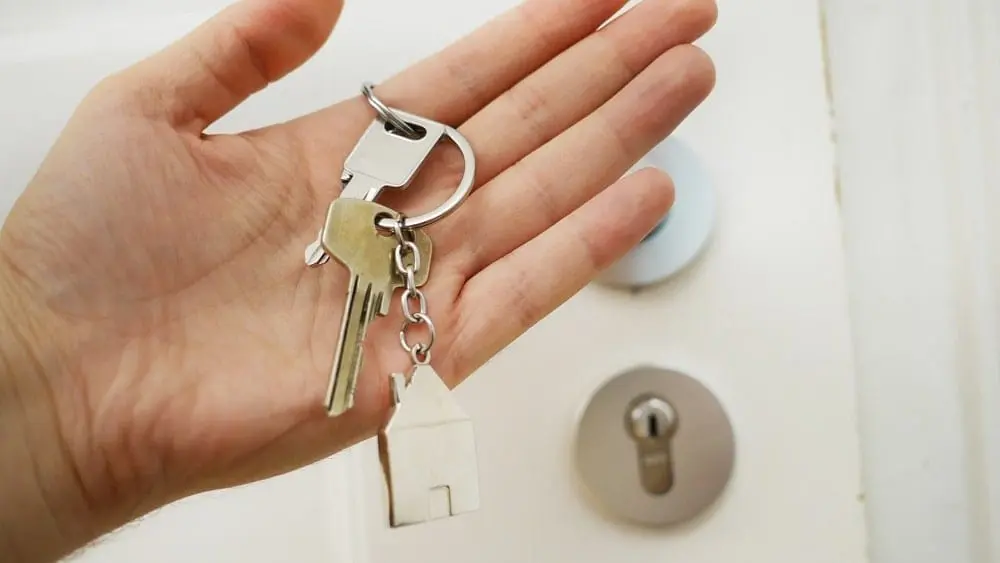
Mortgage rates have gone up. The average rate for a new 30-year fixed-rate mortgage dropped to the mid-4 percent range after peaking near 5 percent in early 2019, but the mid-3 percent rates that buyers locked in a few years ago are history.
“Higher rates mean that today it will cost more than it would have cost 12 months ago to own a home,” says Bruce Ailion, an attorney and Realtor at RE/MAX Town and Country, a realty brokerage in Marietta, Ga.
That might seem daunting, but never fear: Higher rates don’t have to derail your dream of buying a home. In fact, there are ways to buy even though rates are higher.
Here are five strategies to consider:
1. Boost Your Budget
The obvious solution might be to spend more so you can buy the home you want. Obvious doesn’t mean easy or smart, however. Before you choose this strategy, you should review your spending and savings goals to determine whether you can afford a larger monthly payment. If so, you’ll need to document that you earn enough income relative to your debt to qualify for the loan amount you want.
When you review your budget, keep in mind that newly built homes typically come with builder and manufacturer warranties and new energy-efficient appliances. Those advantages of a new home can lower your monthly housing costs. That’s especially true if you currently own an older home that needs repairs and has inefficient appliances.
2. Raise Your Cash Commitment
Another option to buy a home with a higher rate is to spend more cash up-front. You can use cash to:
- Increase your down payment as a percentage of your loan amount
- Pay for builder upgrades out of pocket
- Buy down your rate by paying discount points
Discount points are an up-front fee that you can choose to pay to lower your rate and payment.
These strategies can help to offset the effect of higher rates, says Michael Mesa, branch manager and mortgage planning specialist at Fairway Independent Mortgage in Lacey, Wash.
“Is the buyer looking at financing the builder upgrades into the price of the home or are they paying cash for them?” Mesa says. “How much of a down payment does their mortgage plan call for? Are discount points worth the expense?”
You’ll need to crunch some numbers with your lender to understand whether more cash will help your situation.
3. Tighten Your Team
A third strategy is to get a hybrid loan. This type of mortgage has a fixed rate that resets at the end of a specified period and is then fixed or adjustable for the remainder of the term. An example is a 7/1 hybrid adjustable-rate mortgage (ARM). This type of loan has a lower fixed rate for the first seven years. After that, the rate is adjusted annually (that’s the “1” part) for the remainder of the 30-year term.
“A buyer could consider taking out a medium-term adjustable mortgage to create greater buying power,” Ailion says. “The interest rate could be fixed for three, five, seven or 10 years, then float.”
Hybrid loans can be more affordable since the initial rate is usually lower. But there’s a risk: If you don’t refinance or sell your home before the rate resets, your payment could rise significantly for the rest of the term. If you can’t afford the higher payment, you could lose your home.
4. Rethink Your Needs and Wants
Buying a less costly home is another way to cope with higher rates. Less costly doesn’t have to mean a home you don’t like or that doesn’t fit your needs.
Instead, you could choose a home that:
- Is in a more affordable community.
- Has a lower (or no) lot premium.
- Has a different floor plan.
- Has fewer builder upgrades.
- Has more unfinished space (e.g., a basement).
Your builder’s sales consultant can help you figure out what you need to move into your new home now and what you might be able to add, upgrade or finish later on.
5. Alter Your Timing
Interest rates fluctuate, sometimes dramatically, over time. If you postpone buying a home, rates might be lower in the future, making the home you want more affordable. Or they could be higher, putting the home you want further out of reach.
The Federal Reserve doesn’t directly set the rates homebuyers, consumers and businesses pay for loans. But the Fed does influence these rates, and whether it will continue to push rates higher—and if so, when—depends on economy activity, labor market conditions and inflation. The question for homebuyers is whether waiting and hoping makes sense. The answer is never as clear as a crystal ball.
Moreover, owning a home has certain benefits that renting doesn’t offer.
“Renting means no control over future [home price or interest rate] increases, no accumulation of equity through price appreciation, no tax deduction for [property] taxes and [mortgage] interest if you itemize your deductions, and no benefit for improvements you make to the property,” Ailion says.
Waiting to buy while you hope rates move lower means forgoing those benefits.
Mesa says, “The [lost opportunity] of not buying due to a fear of higher rates far outweighs the benefits of homeownership. It’s best to take advantage of what the rates are today and build equity sooner rather than later.”

Marcie Geffner is an award-winning freelance reporter, writer and editor in Ventura, California. In the last decade, she has penned more than 1,000 published stories about residential and commercial real estate, banking, credit cards, computer security, health insurance and small business, among other subjects. Editors describe her as “detail-driven,” “conscientious,” “smart” and “incredibly versatile.” Her award-winning reporting has been lauded as “rock solid,” “spot-on relevant,” “informative,” “engaging,” “interesting” and “nuanced.” Her stories have been cited in seven published nonfiction books and two U.S. Congressional hearings.
Prior to her freelance career, Geffner was senior editor of California Real Estate magazine. Later, she became managing editor of Inman.com, an independent real estate news website. She also has prior employment experience in technical writing, corporate communications and employee communications. She received a bachelor’s degree in English with high honors from UCLA and master’s degree in business administration (MBA) from Pepperdine University in Malibu, California. She enjoys reading, home improvement projects and watching seagulls at the beach.
 How to Design a Family-Friendly Backyard
How to Design a Family-Friendly Backyard